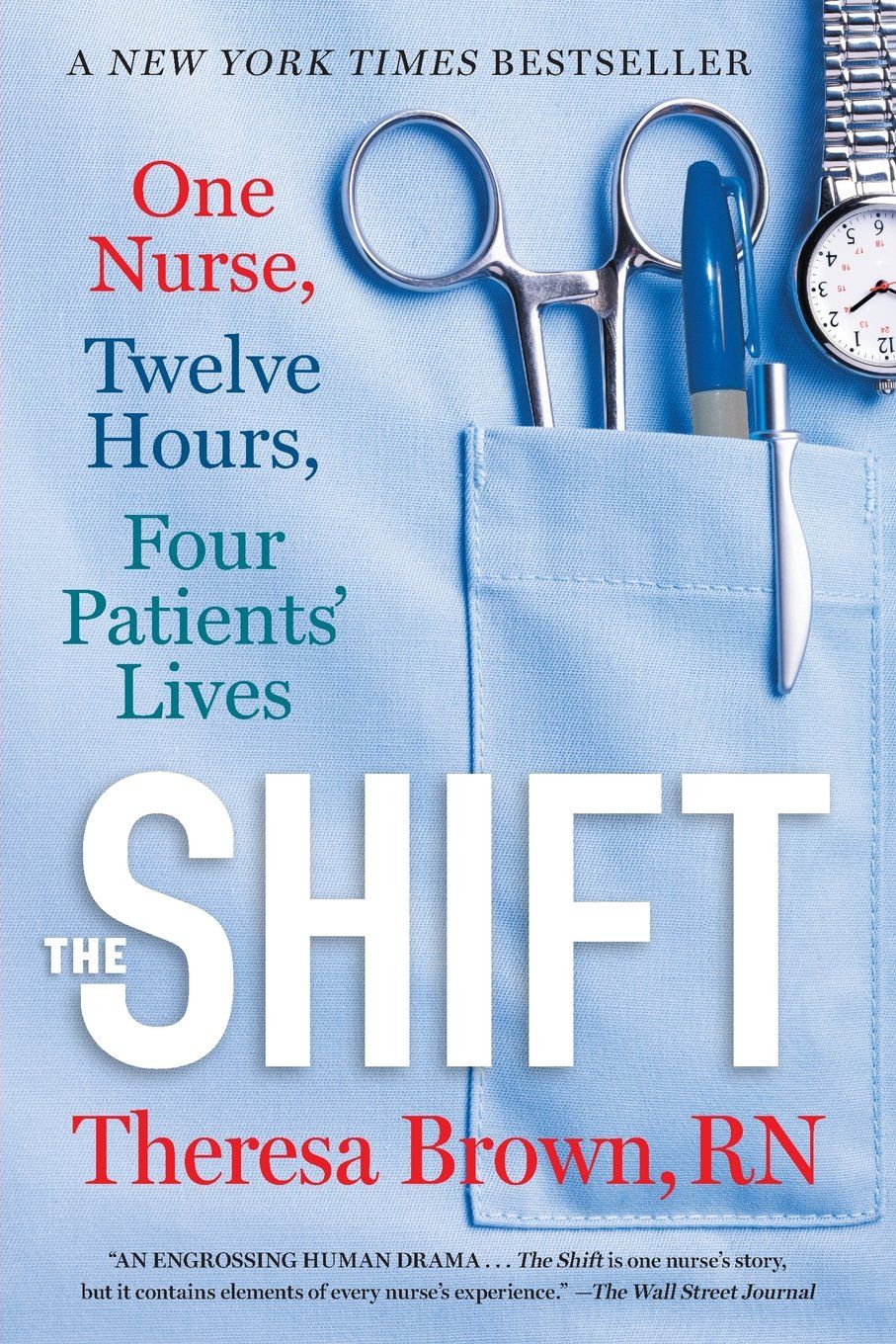
We recommend this book—for healthcare providers, for patients, for residents of LTC facilities and for families of all the above. This is not our typical read or recommended book, but it is instructive for all of us involved in healthcare.
Ms. Brown is an RN, as a chosen second career after teaching English at Tufts University. I am glad she chose nursing and has stuck with it even while indulging her writing passion. Ms. Brown is a contributor to the NY Times, the WSJ, CNN and other news sources, as well as the American Nursing Association. She writes beautifully here about her craft and calling.
Ms. Brown’s book is best described as a Journal of a snapshot of her experiences with patients and staff in the oncology wing of a large PA teaching hospital. Usually, I find “Journal-type” books to be too narrow and personal to be helpful to a broader audience such as ours, but this book is an exception. I am glad that I took the written recommendations of notable publications and personalities in the healthcare field and decided to read the book.
The Shift is most notable in my opinion for 5 brief sub-parts, vignettes if you will, any one of which, because of its importance, could be the singular subject of her next book:
1). Ms. Brown’s two-page discussion of the issue of charting vs care on pp. 80-81 brings some clarity on what should be the goal of charting from a patient’s and caregiver’s mutually shared perspective. She writes to both complain and prescribe, so listen up Administrators out there—please!
2). Ms. Brown’s brief but important discussion (pp. 175-76) of how Docs and Nurses do and should interact and the science that has gone into evaluating and improving this crucial interaction for the sake of everyone in the care chain needs closer attention by all stakeholders.
3). Having a wife who has been a Nurse for 45 years and a Nurse practitioner for the last decade of those 45 years, Ms. Brown’s discussion (pp. 206-10) on how the profession sometimes callously and without justification treats those with chronic pain and in need of substantial medication is beneficial to understanding the issue from both the patient and provider perspectives. More care and understanding needs to be applied here for the sake of truly in-need patients, many of them—like ME--who live in chronic pain daily and say nothing and take nothing, preferring to avoid the stigma of being labeled a “drug-seeker rather than seeking relief desperately needed.
4). Ms. Brown’s discussion on pp. 212-13 of a few of the inefficiencies in healthcare could be a starting place for those with an interest and some power to address costs in healthcare, which inefficiencies can and should be solved.
5). Ms Brown’s poignant treatment and display of love and dissatisfaction at the same time for one patient is maybe the best part of the book and shows what a great nurse can do and feel (see pp. 206-210, but really the entire book with its patient vignettes displays this heartfelt range of emotions.) Seeing it from the patient’s and families’ eyes is called empathy and is too often missing in the healthcare setting. And Ms. Brown admittedly does not always see it, but at least she does on occasion and longs for seeing it more often. Empathy is a grand thing—particularly in healthcare. Too bad we are more likely to see it in a department store or when dealing with Amazon for example than in the acute care or LTC setting, where it is so desperately needed and appreciated generally when received.
Ms. Brown says her book is for her profession—nursing specifically and healthcare providers more broadly. But her book is far more important and instructive for the larger audience of all healthcare professionals—from Docs, to PAs, to Nurses at all levels—RNPs, RNs, LPNs, etc., to ancillary, support and specialty staff such as CNAs, MAs, lab/therapy/radiology/blood techs, and Administrators at all levels. These and more are all in the healthcare chain and can and should be charged with making “the whole ball of wax” better for them AND for all patients and their families, WHATEVER their Zip Code. The system will only improve to something a little closer to what we all deserve IF these under-paid (leaving out most Docs here, sorry), overworked (including most Docs), under-appreciated, and (for far too many) burned out and just surviving and getting by professionals, understand and respond to that challenge. And we the people—including the government--better support—really support--their efforts or we are all doomed to insufferable failure. Listen up and let’s go people before it’s too late.
If you have questions regarding Medicare, Insurance or care, service or safety questions in long-term care facilities of any type, give us a call or drop us a note and we will try to address your question at no cost and in ‘real time.’ We want to help you make the best, most affordable long-term care housing decision for yourself or a loved one and to get all you are entitled to whatever your circumstances are. Now, this is FREE service you can count on, unlike those who pretend to be on your side when all the while they are taking money from the very facilities trying to get your business. We have no such conflict of interest—our ONLY interest is your interest because a better informed, information-armed consumer is the only way we can make long-term care in this country better for us all.”